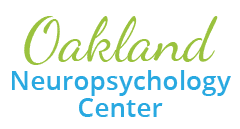After a neuropsychological evaluation, many parents feel relief—finally, there’s a clearer understanding of why their child may be struggling. But one of the most important steps comes right after: meeting with school staff to discuss the results and how to use them to support your child. These school meetings are essential for translating information we learn through testing into real-world support.
Connecting the Dots Between Testing and the Classroom
A neuropsychological evaluation gives a detailed look at how a child thinks, learns, and processes information. But to be truly useful, that information needs to be understood and applied by the people who work with your child every day—their teachers, school psychologist, counselors, and special education staff.
School meetings allow us to share what the testing revealed about your child’s strengths and vulnerabilities, how those relate to their classroom experience, and what supports or accommodations may help them succeed. It’s also a chance for educators to share their observations and help tailor recommendations to the school setting.
Turning Information Into Action
Neuropsychological reports often include recommendations for classroom strategies, possible 504 Plan or IEP supports, and ideas for building on a student’s strengths. But school staff may need clarification or additional context to implement these suggestions effectively. When we attend school meetings, we help bridge that gap. We can explain diagnoses, answer questions, and ensure that the recommendations are practical and relevant to the school’s resources. This makes it more likely that changes will be made—and made well.
Supporting Parents in the Process
School meetings can be overwhelming for parents, especially if you’ve had to advocate for your child in the past. Having your child’s evaluator in the room can help reduce stress, ensure your child’s needs are clearly understood, and give you more confidence in navigating next steps.
We would be happy to talk about school settings and our evaluation process. Please contact us at (248) 644-9466 or by email us on the contact page.



